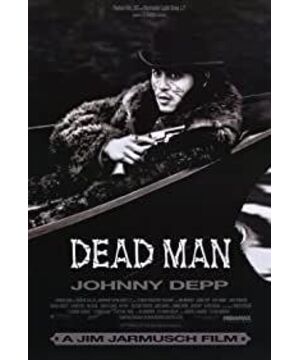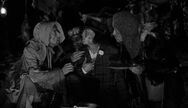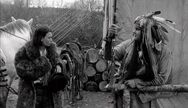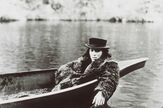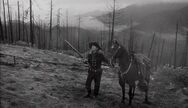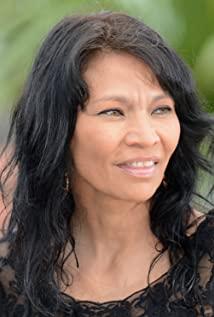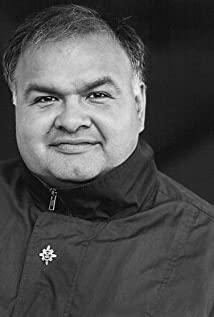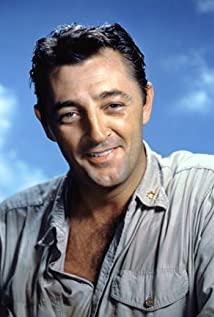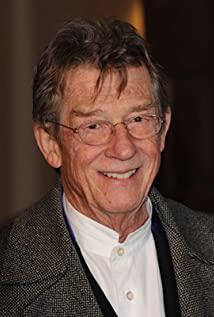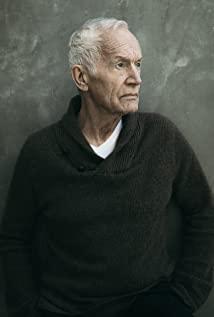Where did it come from
? The story begins a little bit absurdly - William Blake, an obscure accountant from Cleveland, receives a job offer at the Dickinson Metal Works in the western town of Machine, his parents have just passed away, and his fiancée has a change of heart. , so he sold all his property and boarded the westward train. There is no turning back.
There is nothing romantic about this Blake. He wore an otaku plaid suit—though the concept didn't exist at the time—with disc eyes, lard lips, and a boxy suitcase. His eyes were melancholy, hesitant, timid, submissive and calm. The travelers on the train moved from wave to wave; the further west, the more aggressive they became. "Why is it that the landscape is moving but the boat is still?" The question is asked inexplicably by the dirty-faced westerner on the opposite side.
The Kafkaesque opening leaves no doubt about the plausibility of what follows: upon reaching the spooky town of Maison even by day (the town, the setting I've always been most fascinated and suspicious of), Blake didn't get the job. As he walked out of the town tavern in frustration, he met the girl; the girl who made the paper flower; the girl who was destined to meet the paper flower. The girl was charming; she took him to the place, and then it all started to go bad: the girl's fiancé - who turned out to be the Dickinson son - came in and was told "I never loved you" by the girl The lie got annoyed; so the bullet from his pistol went through the girl and into Blake's chest. In the panic, Blake grabbed the gun under the girl's pillow, killed the uninvited guest, and then ran away on the horse downstairs. The story does not waste a word on how Dickinson determined that Blake was the murderer of the two, and directly led him to send three of the most reliable killers to hunt down Blake.
So Blake began his escape.
With whom
he met Nobody. When Blake woke up, no one was trying to dig out the bullet next to his heart—a moment later he declared that it was impossible.
"Do you have tobacco?" no one asked. (It turned out to be the top concern of the locals.)
"I don't smoke," Black replied.
A white horse is a mount for nobody. He's an Indian, an Indian full of poetry, an Indian full of "stupid white men", an Indian who stubbornly thinks Blake is the romantic artist (the subtitles say Blake is an American poet, ha, ha ,what).
"So you killed the one who killed you?" no one asked.
"I'm not dead yet," Blake protested.
But no one will buy it. He still thought that Blake was the poet; the dead poet. He rode Blake around the wasteland; he read poems to Blake, about his miraculous experiences and eccentric philosophies, about lightning, boulders, rapidly shifting cities, but Blake didn't understand—he didn't even remember what he wrote Poetry, the more strange the more strange! No one had Indian symbols painted on Blake's face and stole Blake's glasses. No one said you would see better without it. You're a strange person, Black said, and then in a daze, he heard the other person say: Quest of vision is a great blessing.
When Blake woke up again, there was no one with him - this time he was really alone, with only Harry Potter-style lightning on his face and a gun in his hand.
Blake did see better without the glasses - still the same melancholy, but less hesitant - and he began to march on his own. The two cops oncoming looked at the wanted notice on the tree, then at him, and asked, "You are William Blake?"
"Yes. . . . Do you know my poem?"
Blake really became Poet - he writes poetry with guns and blood. The police chief who was shot by Black was neatly placed in the middle of the bonfire—like a religious icon. The cop who was accidentally shot by the cop's rifle was not so lucky. Blake stepped forward and looked at the religious icon, looked at the other policeman who was not dead, and pulled the trigger by meditating "Some are born to endless night." It seems that in answer to that verse, there are two symmetrical deaths lying on the ground, only one (like) is sacred and the other is in a state of utter embarrassment.
The poet Blake begins to hallucinate. In the bushes at night, the faces of the Indians were painted white; it was the owl, the diva, the zombie bride, the pagan god; Blake was amazed and fascinated—and the only living thing nearby was a Raccoon. Poet Blake embraces a fawn shot in the wild, mixes his own with its blood, and marks his face. He lay with it for a long, long time—he was no different from it after all.
Where to go
The Indians in the film are silent and mysterious, but they are believed to be sharp, intelligent and spiritual civilizations. And it's not unreasonable for "stupid white people" to be full of people: white people don't know William Blake, white people even the name of the town is Machine, white people only know guns and bullets, white people will be white The paper flowers were all overturned in the mud. And at this moment, when no one is leisurely taking Blake on their journey in the canoe, the reliable killer (there is only one left now) is rowing hard behind him. A reliable killer is always one step behind Black.
In the smog, the appearance of Indian communities along the stream suggests that people's journey is nearing the end. The ancient civilization's ability to penetrate people's gaze undoubtedly makes the sense of ritual in the air stronger and stronger.
"I found some tobacco."
"This tobacco, for your voyage." No one pushed Black's cedar canoe out to sea.
"I don't smoke." Blake still replied, but the answer was less serious and more joking.
The reliable killer finally caught up and killed no one, and no one killed the reliable killer.
Everything ends perfectly. Everything is carefully prepared. Everything is Blake's death ritual.
Black traveled all the way to the west to be the protagonist of this ceremony. Perhaps no one is an emissary from Nowhere whose mission is to save Blake from this absurd world—a world of "stupid white men" who call themselves civilized and trample on civilization. Maybe nobody's been with him all along ("Nobody's with me.")—he's just alone, a stranger after all. The world no longer remembers him (no one will remember him, yet no one is gone).
In any case, Blake finally changed from a frustrated Blake to a "poet" Blake, from the piercing train whistle to the boundless and silent sea, converted to the spirit, converted to nature, and returned to where the soul came from and where the soul returned.
Death is not the opposite of life, but an integral part of life. This is perhaps closer to the notion that no one (and perhaps his clan) has ever said about death. So when no one asks, "Did you kill the man who killed you?" it's Blake who misunderstands -- he doesn't know that death is part of life just as breathing, eating, and sleeping are part of life. Lying in the boat, Black, with his peace, hope and tobacco, fades out of the picture and embarks on another unknown journey.
What other death could be so grand, psychedelic, and hopeful?
"You lie in the boat and look at the sky. The water flows by you, and so do the landscapes. Then you wonder, why is the scene moving and the boat still? …" The traveler on the train at the very beginning Just like prophecy.
------
With my limited skills, I can't identify other interesting trivialities or important metaphors in the film, and I really don't know how to complain about the Iggy Pop trio.
11-8-23
View more about Dead Man reviews


